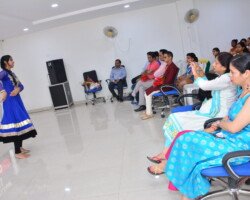JAVA PROGRAMING
Java is a general-purpose computer-programming language that is concurrent, class-based, object-oriented, multi-paradigm and specifically designed to have as few implementation dependencies as possible. It is intended to let application developers “write once, run anywhere” meaning that compiled Java code can run on all platforms that support Java without the need for recompilation which makes it platform independent and highly versatile. Java applications are typically compiled to “bytecode” (an intermediate code which can be understood by any machine) that can run on any Java virtual machine (JVM) regardless of the underlying computer architecture. The language derives much of its original features from SmallTalk, with a syntax similar to C and C++, but it has fewer low-level facilities than either of them. As of 2016, Java was one of the most popular programming languages in use particularly for client-server web applications.
Java Was Developed by James Gosling at Sun Microsystems, initially it was Named OAK and later changed to JAVA as the initials of James Gosling and Arthur Van Hoff. Java is free and open source software available on public platforms and can be downloaded from oracle website.
The main Idea behind java is that it must be
- Simple
- Robust and secure
- Execute with High performance
- Compiled and Interpreted
- Dynamic and user friendly
The latest version of Java is JAVA SE 11 released on 25 September 2018
Java has an array of application from standalone apps to internet applets. At our institute we will provide complete knowledge of java with practical training. Several java editors are available such as BlueJ, NEtBeans , Javabeans and many more
Course content.
- Introduction to Java
- What is Object Oriented Programming?
- Keywords
- Tokens
- Constants
- Variables
- Operators
- Fundamentals of Java Programming
- Basic Programming
- Introduction to If Statement and Switch Case
- Do-While, While and For Loops
- Branching
- Arrays
- Functions
- String Manipulation
- OOP in Java
- Classes and Objects
- Introducing Constructors
- Inheritance
- Polymorphism
- Abstraction
- Data Binding
- Access Specifier
- Accessibility and Visibility
- Constructor and Function Overloading
- Exception Handling











